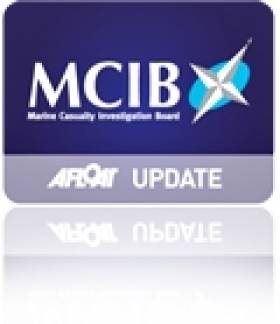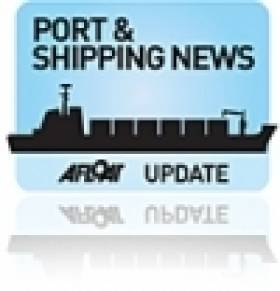Displaying items by tag: Arklow Raider
Report on Cargoship Grounding at the Boyne Bar
#MCIB REPORT– A report investigating the grounding of the Arklow Raider (2007/2,999grt) at the mouth of the River Boyne in 2010, was published yesterday by the Marine Casualty Investigation Board (MCIB).
The 89m general cargoship managed by Arklow Shipping Ltd had docked in Drogheda on 10th November to discharge a full cargo and this was followed by loading cement in bulk.
The Dutch built vessel remained in the Co. Louth port until she departed on the evening tide of the 16th November, however as the vessel passed the bar at the entrance to the River Boyne, it took to the ground and became fast.
The vessel was successfully re-floated on 19th November. Once afloat, checks were made and the vessel was towed to Dublin. At Dublin, the cargo was transhipped to another vessel and the vessel entered dry dock in the port for repairs to the hull and steering gear. Nobody was injured and no pollution occurred.
To read the report in full, copies in PDF format are available to download from the MCIB website HERE.
Irish cargo-ship remains aground off Drogheda Port
The Drogheda Port Company's patrol launch, Boyne Protector has been monitoring the situation as the Arklow Raider lies close to the entrance of the Co. Louth port.































































